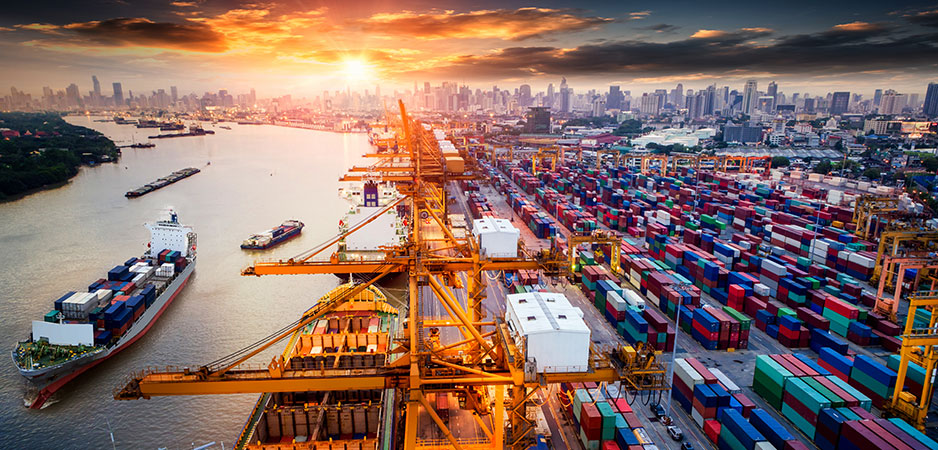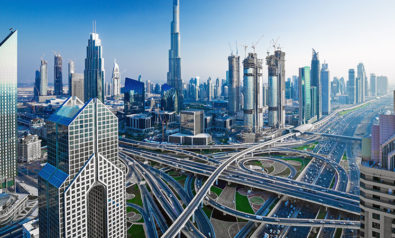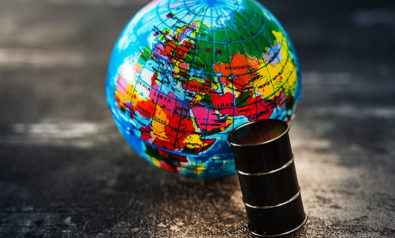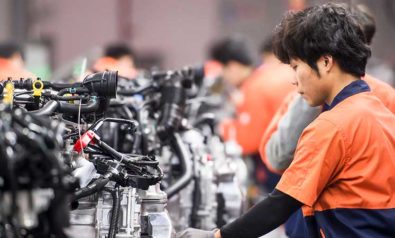Until recently, globalization was heralded as the major engine of global economic growth and, particularly, of the dramatic reduction in inter-country inequality. Globalization was largely seen as a win-win mechanism for both developed and developing countries. Central to globalization has been the expansion of global value chains — the breaking up of the production process into a series of geographically separated steps. Some, such as design and marketing, were retained in developed countries. Others, such as manufacturing and assembly, were outsourced to developing countries. The expectation was that over time, developing countries would “climb up the value chain,” allowing them to converge with the developed West.
The COVID-19 crisis has fundamentally challenged the logic of globalization. It has brutally exposed the underlying flaws of a system exclusively based on cutting costs. Take, for instance, the case of Switzerland. It derives much of its wealth from the pharmaceutical industry, which is a major driver of Swiss exports. Together with chemicals, pharmaceuticals account for roughly half of Swiss exports, way ahead of jewelry, watches and precision instruments. Novartis and Hoffmann-La Roche are global players. Yet when the coronavirus pandemic hit Switzerland, the country was caught completely unprepared.
Coronavirus Threatens China’s Global Trade and Investment Regime
At the beginning of March, pharmacies advised Swiss citizens to follow basic health measures, such as washing hands and using hand sanitizer. There was only one problem: There was no hand sanitizer, neither in the pharmacies nor in the supermarkets. It took Coop, one of the country’s two major supermarket chains (the other is Migros), more than four weeks to provide hand sanitizer to its customers.
Things were equally disastrous with regard to face masks. By now it has been well established that face masks are an effective way to prevent the spread of the virus, which is carried in tiny spit droplets. The easing of lockdown restrictions will ultimately depend on the availability of protective masks for anyone venturing out into the public. Ironically enough, as the Swiss quickly found out, there was not one company in the country in a position to produce face masks. Swiss face masks were imported from Germany, which, in the face of a quickly escalating pandemic, stopped exporting masks to its neighbors.
The Underbelly of Globalization
COVID-19 has laid bare the soft underbelly of globalization — with disastrous consequences. Globalization has entailed two contrary developments: deindustrialization in the north and industrialization in the south. For years, major Western European and North American companies have outsourced core areas of their manufacturing operations to localities overseas. Producing basic commodities such as face masks just was not profitable. Better leave it to the Chinese, Indians or Vietnamese.
Today, we are paying the price — a price that goes into the hundreds of billions. Ironically enough, in Germany today, the country’s decimated textile industry is called upon to retool quickly in order to deliver desperately needed protective masks. Unfortunately, they lack the machines necessary to go into production. The machines have to be procured from China, as the Swiss did a few weeks ago, allowing them to start production after Easter. However, necessity, as they say in German, is the mother of invention. Melitta, Germany’s premier producer of coffee filters, just announced that it has retooled and is in a position to produce protective masks.
COVID-19 has been a wake-up call — or so one would hope. For ages, countries have refused to hand over their vital food supply to the outside world. Even in Switzerland, a country largely covered by mountains and lakes, consumers pay relatively horrendous prices for domestic agricultural products in order to keep domestic producers alive. Food security is essential, as the Germans found out during World War I. This explains why the Chinese have gone at great lengths to secure access to farmland in Africa, opening them up to charges of land grabbing.
Ironically enough, as the current crisis has drastically shown, there have been no similar concerns with regard to health care. Western countries have had no qualms outsourcing the production of essential materials abroad, if only to save on costs. Take the case of medication. Big pharmaceutical companies in Europe and North America are focused on the development and patenting of new drugs. Their active ingredients, however, are largely produced in China from where they are distributed across the globe. As a result, even in Germany, a country with an excellent health-care system, clinics were running out of vital medications such as pain killers and antibiotics.
Today, the health sector is the most visible example of the fundamental flaws of globalization. It is, however, hardly the only one. Take, for instance, the case of the German automobile industry. Much of the production process is not done in Germany, but in central Europe, particularly Slovakia. COVID-19 has severely disrupted these links. In many cases, the crisis poses a fundamental threat to the survival of Germany’s suppliers abroad, which were already under pressure as a result of the rapid pace of technological innovation and change in the industry.
At the same time, the future of Germany’s leading car manufacturers has been compromised by the uncertainty associated with their suppliers. And car manufacturers are hardly unique with respect to international dependency. A recent survey by a leading German consultancy firm found that some 80% of the companies it surveyed depended on Chinese suppliers. This suggests that a serious disruption of the flow of inputs from China has a disastrous effect on companies in Germany. And Germany is hardly a unique case. Over the past few decades, most advanced Western countries have increasingly outsourced core industrial operations to Asia, in the process dramatically increasing their dependence on overseas suppliers.
A Mistake?
The current crisis suggests that this has been a mistake. In case of an emergency, everybody looks out for themselves. We might not like this as it might go against everything we believe in. Yet as we have found out in recent weeks, it is a bitter reality.
The reality is that globalization has substantially weakened national sovereignty. The loss of sovereignty has been most prominent with respect to states’ ability to conduct their own autonomous monetary and fiscal policy in the face of what is known as “financialization.” For a long time, the loss of state sovereignty was seen as a positive development, as long as it led to greater international integration and “societal progress.” The current pandemic has laid bare the flaws inherent in a process that fundamentally depends on its smooth functioning.
A recent public opinion study from France suggests that we might already be on the verge of a fundamental rethinking of the logic behind globalization. Asked what they thought were the main lessons of the crisis for the “time after,” more than 80% of respondents agreed that Europe should repatriate as much as possible of the production value chains that had been outsourced to Asia. Almost 70% thought basic services (water, energy, transportation) should be nationalized, and 70% equally thought that the influence of finance and shareholders on enterprises should be curtailed. These results jibe with earlier findings which showed that the COVID-19 crisis had increased the French public’s sensitivity to the question of inequality and social justice.
These and similar findings suggest that the COVID-19 pandemic might indeed mark a fundamental turning point in recent history. For decades, the international community has been engaged in a debate about social and economic inequality, sustainability and global justice. Much has been written on all of these topics — little has been achieved. The temptation has been to proceed with business as usual.
The Trumps and the Bolsonaros of this world are glaring examples. This time around, it is to be hoped that they won’t succeed. Given the monumental challenges facing humanity after the end of the current crisis — particularly climate change and global warming — major disruptions such as droughts, wildfires or floods are likely to become the new normal. Under the circumstances, a return to business as usual is inviting the next disaster.
The views expressed in this article are the author’s own and do not necessarily reflect Fair Observer’s editorial policy.
Support Fair Observer
We rely on your support for our independence, diversity and quality.
For more than 10 years, Fair Observer has been free, fair and independent. No billionaire owns us, no advertisers control us. We are a reader-supported nonprofit. Unlike many other publications, we keep our content free for readers regardless of where they live or whether they can afford to pay. We have no paywalls and no ads.
In the post-truth era of fake news, echo chambers and filter bubbles, we publish a plurality of perspectives from around the world. Anyone can publish with us, but everyone goes through a rigorous editorial process. So, you get fact-checked, well-reasoned content instead of noise.
We publish 2,500+ voices from 90+ countries. We also conduct education and training programs
on subjects ranging from digital media and journalism to writing and critical thinking. This
doesn’t come cheap. Servers, editors, trainers and web developers cost
money.
Please consider supporting us on a regular basis as a recurring donor or a
sustaining member.
Will you support FO’s journalism?
We rely on your support for our independence, diversity and quality.
































